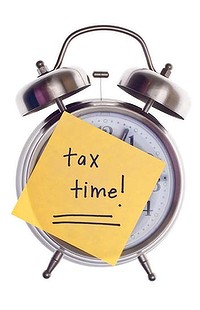Newsletter
Key Tax Dates
- Monday, 01 February 2016 22:19
21 OCTOBER 2015
• Annual pay as you go (PAYG) instalment notice (Form N) – due date for payment. Lodgement is only required if you vary the instalment amount or use the rate method to calculate the instalment. 
• September 2015 monthly activity statements - final date for lodgement and payment.
28 OCTOBER 2015
• Superannuation guarantee contributions for Quarter 1 (July - September 2015) are to be made to the fund by this date.
31 OCTOBER 2015
• Final date to appoint a tax agent to the income tax role for any new client. If you advise us of your appointment after this date, your 2015 income tax return may not be covered by the concession in our tax agent lodgement program.
• Income tax returns for all entities where one or more prior year income tax returns were outstanding as at 30 June 2015. This means all prior year returns must be lodged, not just the immediate prior year. If all outstanding prior year returns have been lodged by this date, the ATO system will reset the 2015 return due date as per the normal program. Self-managed super funds (SMSF) in this category must lodge their complete Self-managed superannuation fund annual return by this date.
• Income tax return for all entities prosecuted for non-lodgement of prior year income tax returns and advised of a lodgement due date of 31 October 2015. Some prosecuted clients may have been given a different lodgement due date. Refer to the letter you received on this matter for the applicable due date. Self-managed super funds (SMSF) in this category must lodge their complete Self-managed superannuation fund annual return by this date.
21 NOVEMBER 2015
• October 2015 monthly activity statements - due date for lodgement and payment.
25 NOVEMBER 2015
• Quarter 1 activity statements (July - September 2015) - due date for lodgement and payment if you are lodging via electronic commerce interface (ECI), electronic lodgement service (ELS), Tax Agent Portal, BAS Agent Portal or Standard Business Reporting (SBR).
28 NOVEMBER 2015
• Due date for lodging Superannuation guarantee charge statement - quarterly and paying the super guarantee charge for Quarter 1 (July – September 2015), if the employer did not pay enough contributions on time.
1 DECEMBER 2015
• Income tax for taxable large/medium businesses, companies and super funds - due date for payment. Lodgement of return is due 15 January 2016.
• Income tax for companies and super funds where lodgement of the income tax return was due 31 October 2015 - due date for payment.
21 DECEMBER 2015
• November 2015 monthly activity statements - final date for lodgement and payment.
ATO focus on rental property deductions and holiday homes
- Monday, 01 February 2016 22:19
The ATO has announced that it is increasing its focus on rental property deductions and is encouraging all rental owners to double-check their claims before lodging their tax return.
The ATO is paying particular attention to excessive deductions claimed for rental properties, especially those located in popular holiday destinations around Australia. It has reminded taxpayers to only claim the deductions they are entitled to, for the periods the holiday home is rented out or is genuinely available for rent.
The ATO has identified a number of instances where taxpayers are claiming rental deductions for holiday homes that appear to be higher than expected when compared to the rental income being reported. 
As part of the ATO’s prevention before correction approach, they are sending letters to taxpayers in approximately 500 postcodes across Australia, reminding them to only claim the deductions they are entitled to, for the periods the holiday home is rented out or is genuinely available for rent.
There are a few simple rules rental property owners should follow to avoid making mistakes on their tax return.
Firstly, it is important for all property owners to keep accurate records. This helps to ensure they declare the right amount of rental income and they have evidence for claims made.
Secondly, rental property owners should only claim deductions for the periods the property is rented out or is genuinely available for rent. If a property is rented at below market rates, for example to family or friends, deduction claims must be limited to the income earned while rented.
ATO focus on work-related expenses
- Monday, 01 February 2016 22:19
The ATO has advised taxpayers that it will be focusing this year on unusually high work-related expenses claims across all industries and occupations.
Technology enhancement and use of data is improving the ATO's ability to identify and investigate such claims. The ATO will also focus on claims that are already reimbursed by employers and private expenses such as travel from home to work. 
When claiming work-related travel, you can't claim for a normal trip between home and work, unless:
- you use your car to carry bulky tools or equipment which you use for work and can’t leave on the work premises;
- your home is a base for employment; and
- you have shifting places of employment (you regularly work at more than one place each day).
The ATO has reminded taxpayers that in order to claim work-related expenses, the taxpayer must have spent the money, it must be related to their job and they must have a record to prove it.
Small Business Grant
- Monday, 01 February 2016 22:19
The Small Business Grants (Employment Incentive) Act 2015 received assent on 29 June 2015. The Grant will provide employers up to $2,000 per new employee for businesses that don't pay payroll tax. The grant is designed to encourage the nearly 650,000 small businesses in NSW that do not pay payroll tax to hire new employees and expand their business.
The Grant will apply to new positions filled on or after 1 July 2015 and will continue until 30 June 2019. The Grant will be payable after the first anniversary of the hire of a new employee. The grant is a one off payment per new position and is paid when a claim is made on the 12 month anniversary of when the position was created. 
For full-time employees the grant amount is $2,000. In the case of part time or casual employees, the grant amount will be pro-rated based on FTE hours of employment.
Businesses will be able to register for the Grant from 1 July 2015. Registration for the grant can be made:
- by an employer who has an active ABN and is NOT registered for payroll tax; and
- within 60 days after the employment commences.
WHAT BUSINESSES ARE ELIGIBLE?
To be eligible for the grant your business must:
- have an active ABN; and
- not have a payroll tax liability, during the 12 month employment period of a new person as at 30 June of the financial year.
WHAT EMPLOYMENT IS ELIGIBLE?
A business will receive the grant if all the following employment conditions are met:
- A person is employed in a position that is a new job.
- The employment commences on or after 1 July 2015 and before 1 July 2019.
- The employment is maintained for a period of 12 months.
- Your number of full-time equivalent (FTE) employees, prior to creating a new position must increase and be maintained over a 12 month period.
- The services of the employee are performed wholly or mainly in NSW.
Newsletter Signup
Receive FREE information and advice on Accounting & Taxation every Quarter
SignupArchive
- 4th Quarter 2024 (8)
- 3rd Quarter 2024 (9)
- 2nd Quarter 2024 (9)
- 1st Quarter 2024 (11)
- 4th Quarter 2023 (11)
- 3rd Quarter 2023 (9)
- 2nd Quarter 2023 (7)
- 1st Quarter 2023 (8)
- 4th Quarter 2022 (9)
- 3rd Quarter 2022 (8)
- 2nd Quarter 2022 (10)
- 1st Quarter 2022 (9)
- 4th Quarter 2021 (9)
- 3rd Quarter 2021 (8)
- 2nd Quarter 2021 (9)
- 1st Quarter 2021 (7)
- 4th Quarter 2020 (8)
- COVID-19 STIMULUS NEWSLETTER (8)
- 3rd Quarter 2020 (7)
- 2nd Quarter 2020 (9)
- 1st Quarter 2020 (9)
- 4th Quarter 2019 (8)
- 3rd Quarter 2019 (8)
- 2nd Quarter 2019 (7)
- 1st Quarter 2019 (8)
- 4th Quarter 2018 (7)
- 3rd Quarter 2018 (8)
- 2nd Quarter 2018 (8)
- 1st Quarter 2018 (8)
- 3rd Quarter 2017 (7)
- 2nd Quarter 2017 (7)
- 1st Quarter 2017 (7)
- 4th Quarter 2017 (8)
- 4th Quarter 2016 (7)
- 3rd Quater 2016 (7)
- 2nd Quater 2016 (7)
- 1st Quarter 2016 (8)
- 4th Quarter 2015 (6)
- 3rd Quarter 2015 (6)
- 2nd Quarter 2015 (8)
- 1st Quarter 2015 (6)
- 4th Quarter 2014 (7)
- 3rd Quarter 2014 (8)
- 2nd Quarter 2014 (7)
- 1st Quarter 2014 (8)
- 4th Quarter 2013 (7)
- 3rd Quarter 2013 (6)
- 2nd Quarter 2013 (9)
- 1st Quarter 2013 (8)